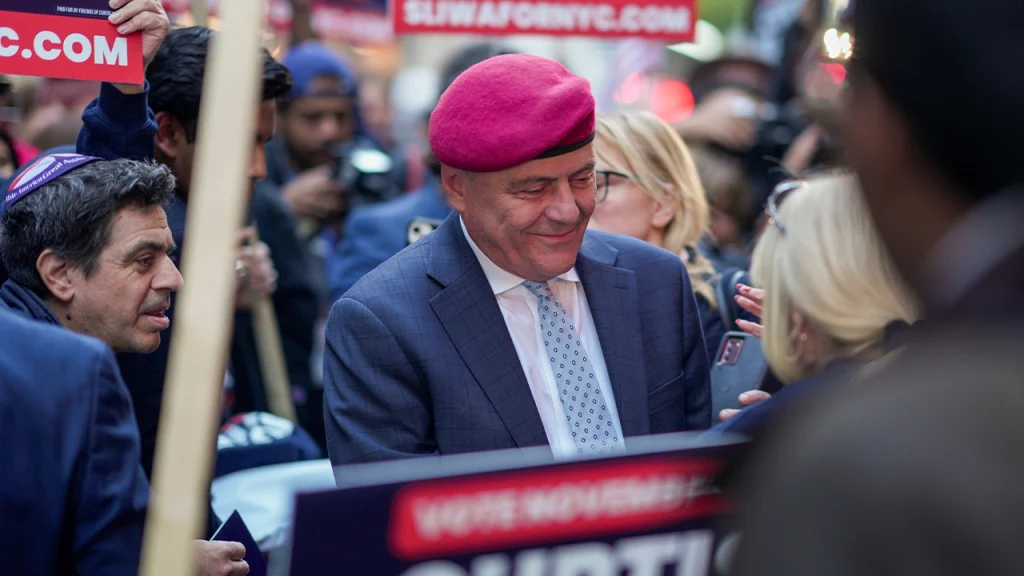Billionaire’s Intervention Stirs Controversy in High-Stakes NYC Mayoral Race
In a surprising turn of events, the New York City mayoral race has become the focal point of billionaire investor Bill Ackman’s political commentary, with the Pershing Square Capital founder claiming that Republican candidate Curtis Sliwa’s refusal to exit the race has dramatically boosted democratic socialist Zohran Mamdani’s chances of victory. According to prediction market data Ackman shared on social media, Mamdani now has nearly a 90% chance of winning, far ahead of both former Governor Andrew Cuomo and Sliwa. “It was not Zohran Mamdani’s debate performance. It was Curtis Sliwa’s statement after the debate that he is not leaving that has tipped the odds to 90% for Mamdani,” Ackman wrote, making a rare and notable intervention by a high-profile investor in a local election. His comments have ignited controversy about the influence of wealth in politics, with Ackman having previously supported Cuomo’s independent bid and urged Sliwa to step aside to give the former governor “a better shot.”
The Sliwa campaign has forcefully rejected Ackman’s call for withdrawal, issuing an exclusive statement declaring that “Billionaires aren’t going to decide the outcome — it’s the voters. It’s the people.” Campaign spokesperson Maria Sliwa emphasized that her candidate has always intended to remain in the race to provide Republicans with a choice, pointedly suggesting that if anyone should drop out, it should be Cuomo, who “lost the primary as a Democrat” and is now “running as an independent.” This resistance highlights the tension between grassroots politics and the influence of wealthy donors, with Sliwa’s team maintaining that “This race won’t be decided by millionaires, billionaires or professional politicians. It will be decided by the voters on November 4.” The dispute reflects broader questions about democratic representation and the role of money in shaping electoral outcomes.
Meanwhile, Cuomo has launched his own offensive against Sliwa, accusing him of being a “spoiler” deliberately positioned by Republican party leaders to help Mamdani win for strategic national purposes. During a radio appearance, Cuomo claimed Republican officials want Mamdani to win so they can “run him around the country saying, ‘Look at how crazy this Democratic Party is — they elected a 33-year-old socialist who’s anti-cop, anti-business, antisemitic.'” Cuomo bluntly told listeners that voting for Sliwa effectively means voting for Mamdani, saying, “You vote for Curtis, just save yourself the time and vote for Mamdani.” The former governor also attacked Mamdani’s public safety policies, warning that plans to defund the police and close Rikers Island without new jails would lead to “a mass exodus from this city” that would irreparably damage New York.
The 2025 NYC mayoral race has captured national attention for its dramatic storylines and potential historical significance. Mamdani, 33, is a socialist state assemblyman from Queens who surprised many by defeating Cuomo in the Democratic primary. If elected, he would make history as the city’s first Muslim mayor and has secured endorsements from progressive heavyweights like Representative Alexandria Ocasio-Cortez and Senator Bernie Sanders. Cuomo, 65, is attempting a political comeback four years after resigning as governor amid scandal, positioning himself as a moderate alternative who can defeat Mamdani. His campaign has gained momentum since Mayor Eric Adams dropped out of the race. Sliwa, 69, best known as the founder of the Guardian Angels citizen patrol group, has built his campaign around addressing crime and quality-of-life concerns, having previously secured 27% of the vote in the 2021 mayoral election.
Ackman’s involvement has not only intensified the political drama but also drawn attention to Polymarket, a prediction platform where users bet on political outcomes. The contract for the NYC mayoral race has already exceeded $190 million in trading volume, making it one of the largest for any local U.S. election. Ackman’s social media posts about the prediction markets have fueled both public interest and trading activity, creating a feedback loop between financial speculation and political discourse. This intersection of finance, technology, and politics illustrates how modern electoral races are increasingly influenced by forces beyond traditional campaign activities, with prediction markets potentially shaping public perception of candidates’ viability.
As November 4th approaches, the race remains fluid and unpredictable. Polling suggests that Cuomo could potentially close the gap with Mamdani in a head-to-head matchup, but analysts question whether Sliwa’s supporters would automatically shift to Cuomo if their candidate withdrew. The three-way contest has evolved into a complex battle not just between differing visions for New York City’s future, but also between competing political strategies, personal ambitions, and financial interests. With Mamdani representing progressive change, Cuomo positioning himself as an experienced moderate, and Sliwa standing firm on traditional Republican values, voters face a stark choice that could determine the trajectory of America’s largest city for years to come. Beyond the local implications, the outcome will likely be interpreted as a bellwether for broader political trends, particularly regarding the strength of progressive movements in urban Democratic strongholds.


